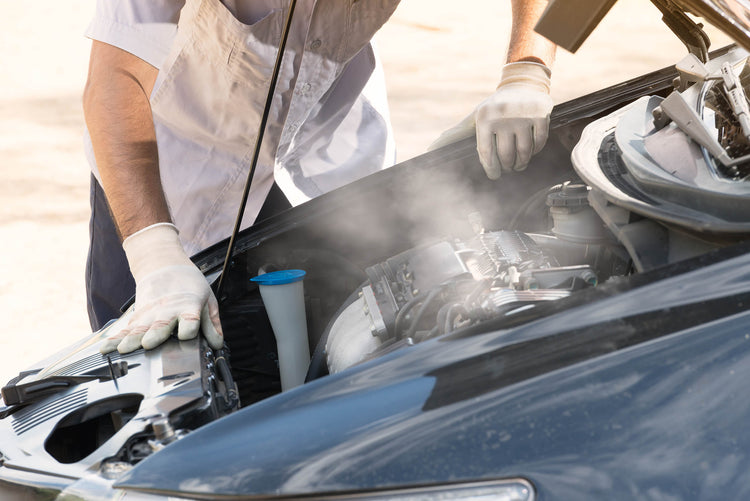
Overheating
Most modern engines operate within a temperature range of approximately 88º to 105º Celsius (190º to 220º Fahrenheit). If an engine exceeds its normal operating range and overheats, the elevated temperatures can cause extreme stress in the cylinder head. This is particularly true of bi-metal engines, where the difference in the thermal expansion rate of the aluminium cylinder head is two to three times that of the cast iron block. It is important to note at this time that a water temperature gauge only records the average temperature of the engines coolant, it does not indicate the temperature of the engine block or cylinder head castings.
Overheating occurs when the heat generated by the combustion process exceeds the ability of the engines cooling system to absorb and dissipate. Low coolant, accumulated deposits in the water jackets, defective thermostat or radiator cap, slipping fan clutch or inoperative electric fan, eroded or loose water pump impeller and poor air flow through the radiator can all contribute to an engine overheating. Other factors such as retarded ignition timing, lean air/fuel mixture, detonation/pre-ignition, exhaust restrictions and overworking the engine will also contribute to overheating.


